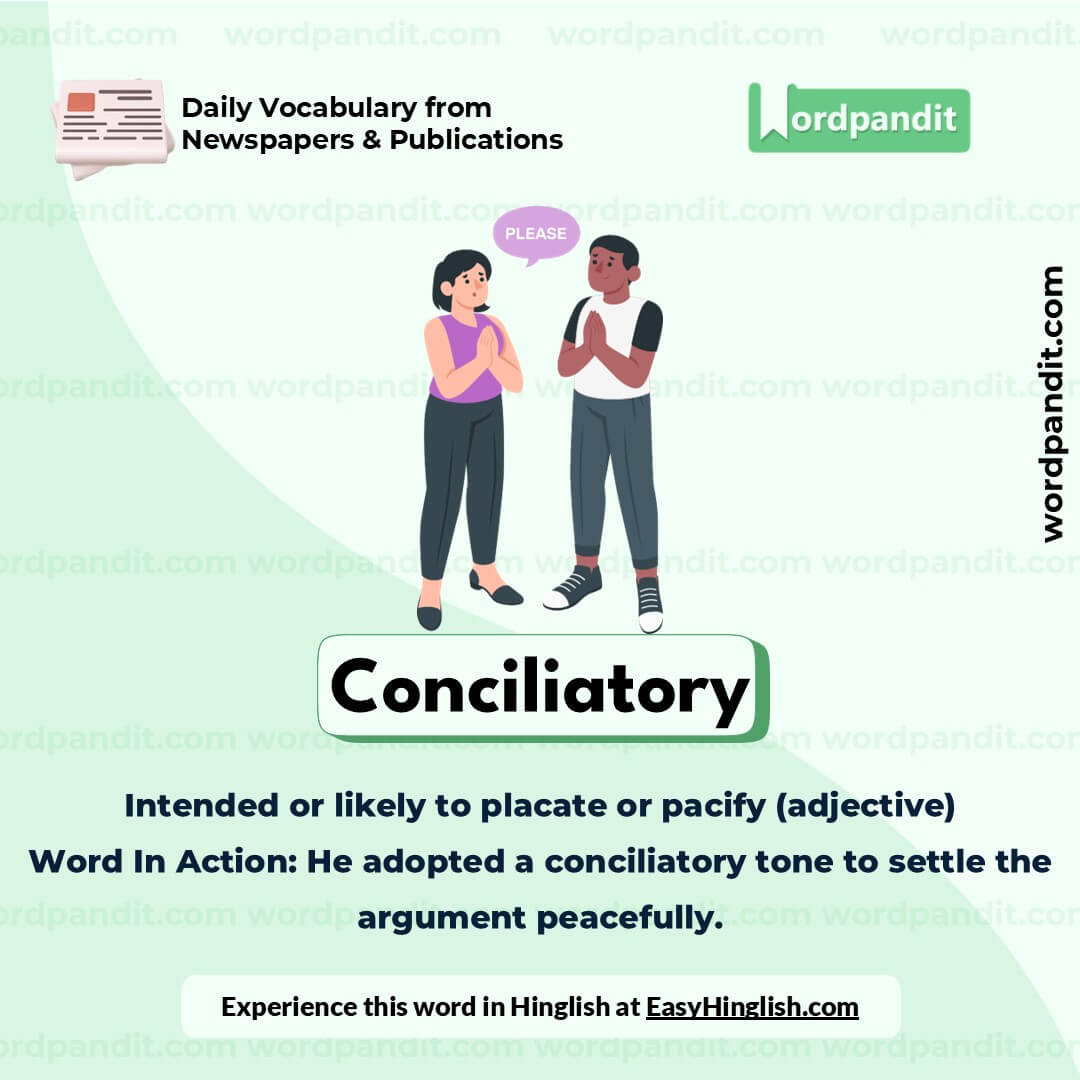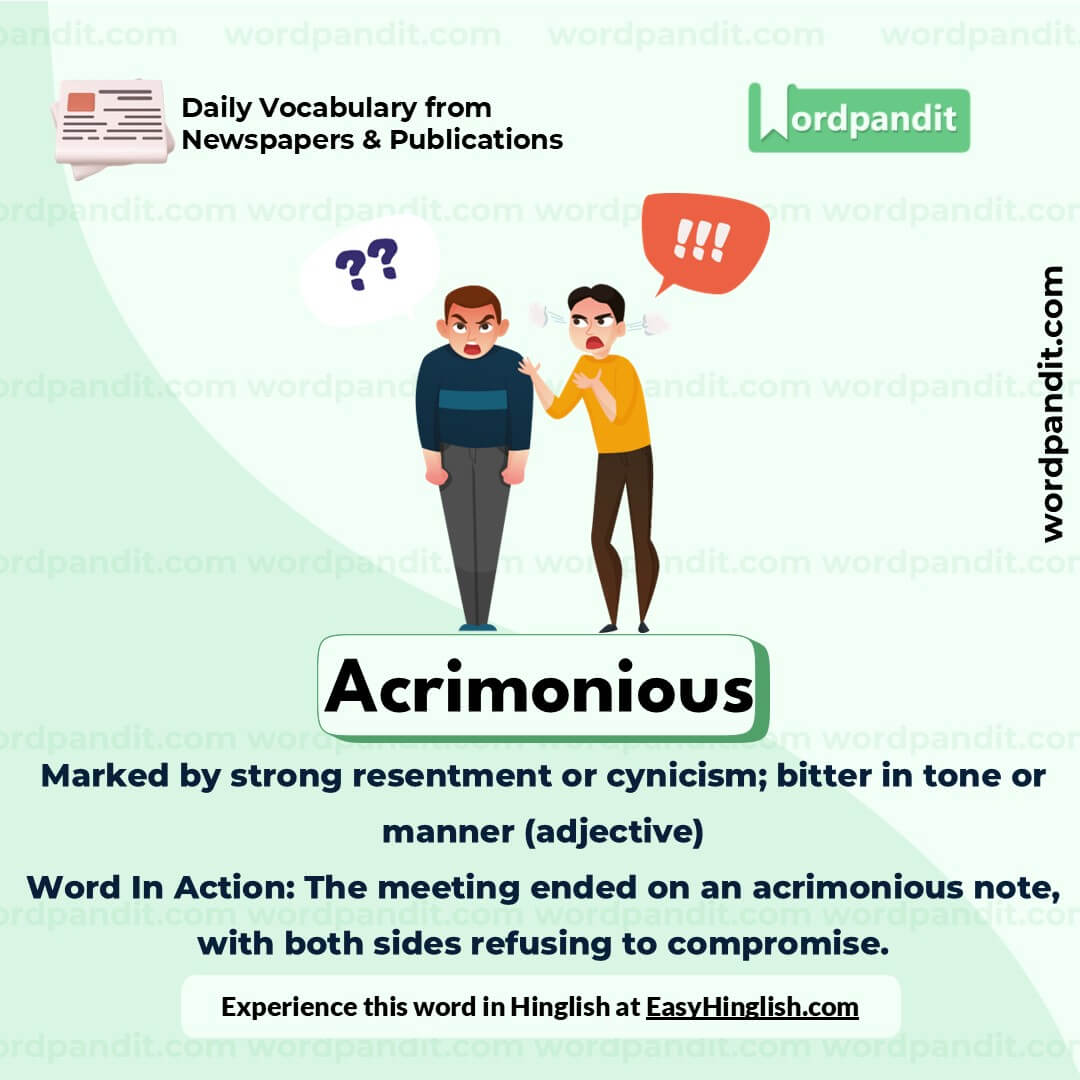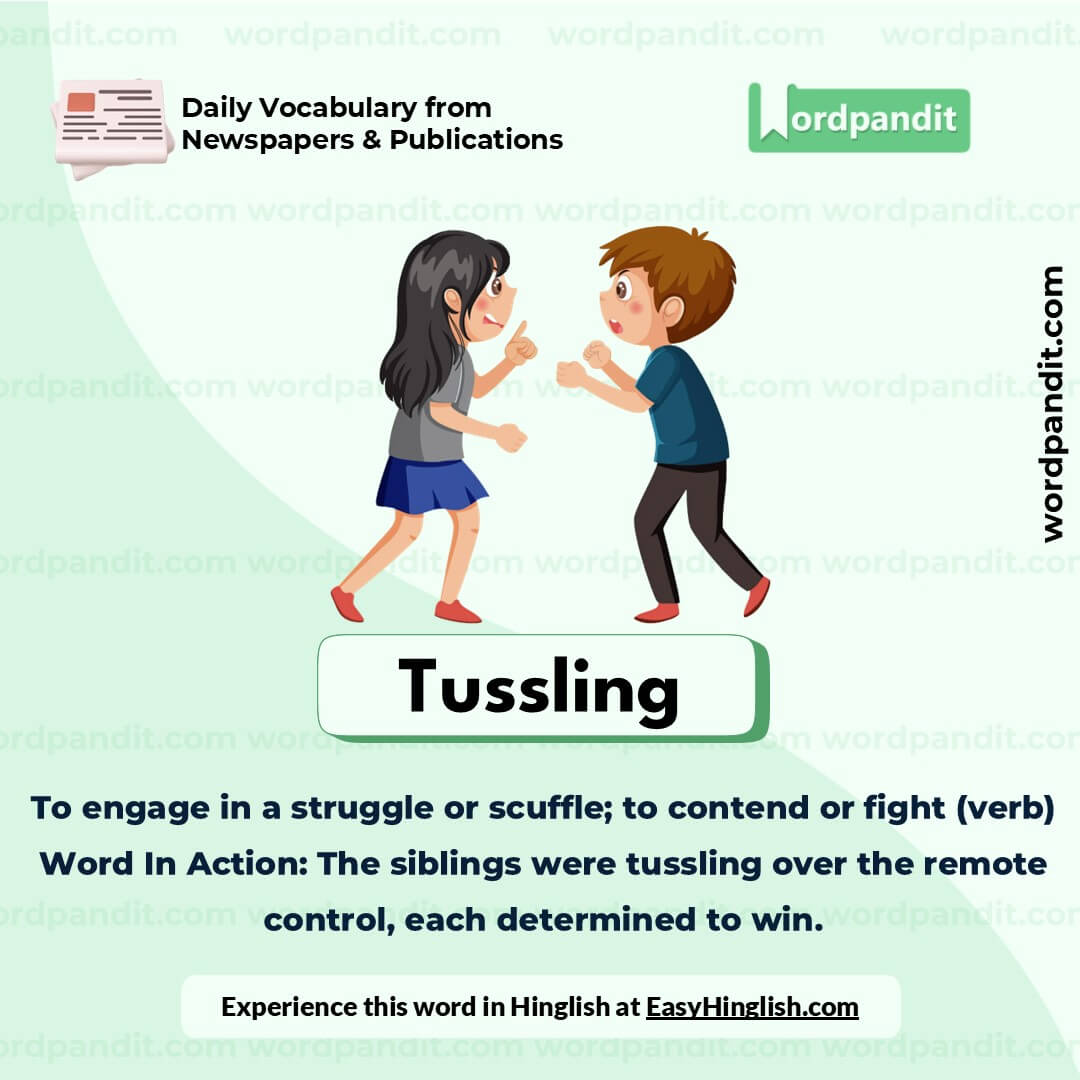Daily Vocabulary from International Newspapers and Publications
Expand Your Vocabulary with Wordpandit’s Global Vocabulary Hub
At Wordpandit, we are committed to helping you develop a truly global vocabulary by drawing from some of the most respected international publications. This section is designed to keep you ahead of the curve by introducing you to words that define global conversations and trends.
The Power of Global Sources
To help you think and communicate on a global scale, we curate vocabulary from renowned international sources, such as:
- The New York Times
- The Washington Post
- BBC
- The Guardian
- The Economist
- Scientific American
- Psychology Today
- And many more...
Stay Global, Stay Competitive
Our daily updates from international publications ensure you are consistently exposed to new words that reflect global news and developments, making sure your vocabulary is not only current but also globally relevant.
Enhance Your Global Perspective
Whether you’re preparing for international exams, aiming to excel in global business communication, or want to enhance your language skills for personal growth, Wordpandit offers the resources you need to thrive in a global context.
Effective Learning, Global Reach
Our learning methodology combines global examples, memory aids, and interactive activities, allowing you to internalize new words effectively and apply them in real-world scenarios.
Begin Your Global Vocabulary Journey Now!
Why Choose Wordpandit?
Practical Learning: Focus on words you'll actually encounter in real-world reading, enhancing your comprehension and communication skills.
Diverse Content: From current affairs to scientific breakthroughs, our varied sources expose you to vocabulary across multiple domains.
Effortless Integration: Make Wordpandit a part of your daily routine. Just a few minutes each day can significantly boost your lexicon over time.
Your Path to Vocabulary Mastery
- Visit our Daily Vocabulary section regularly
- Explore new words and their usage in context
- Practice incorporating these words into your own writing and speech
- Track your progress as your vocabulary expands
Start Your Journey Today
Embark on your vocabulary enhancement journey with Wordpandit. By consistently engaging with our daily posts, you'll build a robust vocabulary that serves you well in academic, professional, and personal contexts.
Remember, a word a day keeps linguistic limitations at bay. Make Wordpandit your daily companion in the quest for vocabulary excellence!
WORD-1: Conciliatory
Context:
"Ms. Bondi adopted a more conciliatory tone toward the L.G.B.T.Q. community." - The New York Times
Explanatory Paragraph:
The word conciliatory describes actions or attitudes intended to calm, pacify, or make peace with others, especially in a situation of conflict or tension. It suggests a willingness to compromise and foster harmony.
Meaning: Intended or likely to placate or pacify (adjective)
Pronunciation: kən-SIL-ee-uh-tor-ee
Difficulty Level: ⭐⭐⭐ (Intermediate)
Etymology: From Latin conciliatus, past participle of conciliare, meaning "to bring together, unite."
Synonyms & Antonyms:
Synonyms: appeasing, pacifying, mollifying, peacemaking
Antonyms: antagonistic, confrontational, provocative
Usage Examples:
- The ambassador's conciliatory gestures helped ease tensions between the two nations.
- Her conciliatory remarks during the debate won over many undecided voters.
- In an effort to mend their friendship, he adopted a conciliatory approach during their conversation.
- The management issued a conciliatory statement to address employee grievances.
Cultural Reference:
"Conciliatory actions often pave the way for lasting peace and understanding, as seen in historical diplomatic efforts such as the Camp David Accords." - Reference to global peace-building practices.
Think About It:
Why is it important to adopt a conciliatory tone in sensitive discussions or conflicts?
Quick Activity:
Think of a recent conflict or disagreement you were involved in. How might a conciliatory approach have improved the outcome?
Memory Tip:
Remember "conciliatory" by linking it to "reconcile"—both share the goal of making peace.
Real-World Application:
Using a conciliatory tone in professional emails or negotiations can help diffuse tension and build stronger relationships.
WORD-2: Preceptor
Context:
"A preceptor is an experienced mentor or teacher guiding students or trainees in practical, professional, or academic learning environments." - BBC
Explanatory Paragraph:
A preceptor is someone who plays a crucial role in teaching or mentoring individuals in a hands-on or professional setting. They help bridge the gap between theory and practice by offering guidance, support, and expertise to learners.
Meaning: A practicing physician who gives personal instruction, training, and supervision to a medical student or young physician (noun)
Pronunciation: PREE-sep-ter
Difficulty Level: ⭐⭐⭐⭐ (Advanced)
Etymology: From Latin praeceptor, meaning "teacher," derived from praecipere, meaning "to instruct."
Synonyms & Antonyms:
Synonyms: mentor, teacher, tutor, guide, instructor
Antonyms: student, novice, pupil
Usage Examples:
- The medical students were assigned a preceptor to help them navigate clinical rotations.
- As a preceptor, she provided invaluable advice and encouragement to her trainees.
- In many professions, a preceptor's guidance is essential for developing practical skills.
- Her preceptor was instrumental in helping her understand the complexities of the job.
Cultural Reference:
"Preceptorships have been a key part of training in fields such as nursing and medicine, where experienced practitioners help shape the next generation of professionals." - Reference to healthcare training systems.
Think About It:
How can the role of a preceptor influence a student's career trajectory and confidence in their field?
Quick Activity:
Identify someone in your life who has acted as a preceptor to you. Write a short paragraph about how their mentorship impacted your learning.
Memory Tip:
Think of "preceptor" as "prepares through expertise" to recall its meaning as a mentor or guide.
Real-World Application:
Preceptors are vital in professional internships and residencies, ensuring that theoretical knowledge is effectively applied in real-world situations.
WORD-3: Acrimonious
Context:
"Their marriage ended eight years ago in an acrimonious divorce." - The New York Times
Explanatory Paragraph:
The word acrimonious describes a situation, conversation, or relationship filled with bitterness, resentment, or harshness. It often refers to interactions where strong feelings of anger and hostility dominate.
Meaning: Marked by strong resentment or cynicism; bitter in tone or manner (adjective)
Pronunciation: ak-ruh-MOH-nee-uhs
Difficulty Level: ⭐⭐⭐ (Intermediate)
Etymology: From Latin acrimonia, meaning "sharpness or severity," derived from acer, meaning "sharp."
Synonyms & Antonyms:
Synonyms: bitter, harsh, caustic, resentful
Antonyms: amicable, harmonious, cordial, friendly
Usage Examples:
- The debate turned acrimonious as both candidates resorted to personal attacks.
- After years of an acrimonious feud, the two neighbors finally agreed to settle their differences.
- The acrimonious tone of the meeting made it clear that no agreement would be reached.
- The business partners parted ways acrimoniously after a series of heated disputes.
Cultural Reference:
"Acrimonious conflicts often feature in courtroom dramas, where opposing parties exchange bitter arguments, as seen in films like 'Kramer vs. Kramer'." - Reference to pop culture.
Think About It:
Why do you think acrimonious situations are so common in personal and professional disputes? What can be done to avoid them?
Quick Activity:
Think of a situation where you witnessed an acrimonious argument. Write down how the conflict could have been resolved more amicably.
Memory Tip:
Remember "acrimonious" by linking it to "acid"—both imply sharpness, bitterness, or harshness.
Real-World Application:
Understanding the word "acrimonious" can help you identify and address bitterness in conflicts, whether in personal relationships or professional settings.
WORD-4: Grumbled
Context:
"She grumbled quietly about the cold weather, her breath forming clouds as she trudged through the snow-covered streets towards home." - BBC
Explanatory Paragraph:
The word grumbled refers to speaking in a low, complaining tone, often expressing dissatisfaction or annoyance. It suggests a muted or under-the-breath way of voicing complaints without outright confrontation.
Meaning: To complain or protest about something in a low, often indistinct tone (verb)
Pronunciation: GRUHM-buhld
Difficulty Level: ⭐⭐ (Beginner)
Etymology: From Middle Dutch grommelen, meaning "to murmur or mutter."
Synonyms & Antonyms:
Synonyms: complain, mutter, moan, whine
Antonyms: praise, compliment, applaud
Usage Examples:
- The children grumbled about having to do their homework instead of playing outside.
- He grumbled as he struggled to open the tightly sealed jar.
- The employees grumbled about the new policies during their lunch break.
- She grumbled under her breath, frustrated by the long line at the grocery store.
Cultural Reference:
"Grumbling is often depicted humorously in literature and film, such as the grouchy characters in Charles Dickens' novels who complain about their hardships." - Reference to classic literature.
Think About It:
Is grumbling a productive way to express dissatisfaction, or does it hinder communication? Why?
Quick Activity:
Think of a recent time you grumbled about something. How could you have turned your complaint into a constructive suggestion?
Memory Tip:
Link "grumbled" to "grumpy mumbling" to remember its meaning of complaining in a low tone.
Real-World Application:
Understanding the word "grumbled" helps in recognizing subtle complaints in conversations, which can be a cue to address underlying issues.
WORD-5: Tussling
Context:
"The Pebble Partnership had been tussling with environmental regulators for more than a decade when it hired Mr. Ballard’s firm in 2019 to help it secure regulatory permits." - The New York Times
Explanatory Paragraph:
The word tussling refers to engaging in a vigorous struggle or conflict, often physical but also used metaphorically for intense disputes or competitions. It conveys a sense of effort and persistence in overcoming challenges or opponents.
Meaning: To engage in a struggle or scuffle; to contend or fight (verb)
Pronunciation: TUHS-ling
Difficulty Level: ⭐⭐ (Beginner)
Etymology: From Middle English touselen, meaning "to handle roughly."
Synonyms & Antonyms:
Synonyms: wrestling, grappling, struggling, fighting, contending
Antonyms: agreeing, cooperating, yielding
Usage Examples:
- The two teams were tussling for control of the ball during the intense match.
- The lawyer spent hours tussling with opposing counsel over the contract terms.
- Children were tussling playfully in the yard, laughing as they tried to pin each other down.
- She found herself tussling with doubts as she prepared for the big presentation.
Cultural Reference:
"Tussling is a common theme in sports movies, often showcasing intense rivalries and physical struggles, such as in the film 'Rocky' where characters tussle both literally and figuratively." - Reference to sports and competition in media.
Think About It:
What strategies can help resolve tussles, whether physical or metaphorical, in a constructive way?
Quick Activity:
Write about a time when you were involved in a "tussle" (literal or metaphorical). How was the situation resolved?
Memory Tip:
Remember "tussling" by imagining "tussling muscles" to connect it with a vigorous struggle.
Real-World Application:
Understanding "tussling" helps describe conflicts or competitions, whether in sports, debates, or regulatory battles, making it useful in storytelling and professional discussions.


















